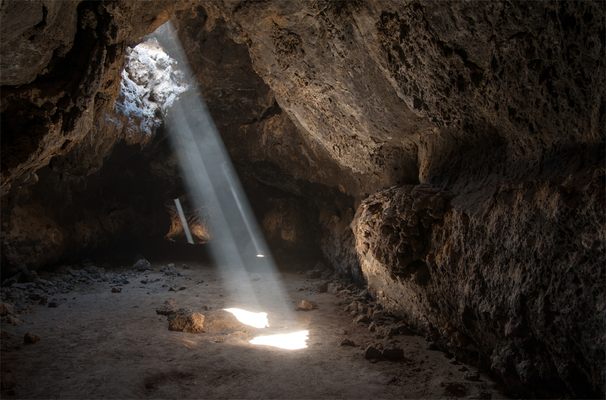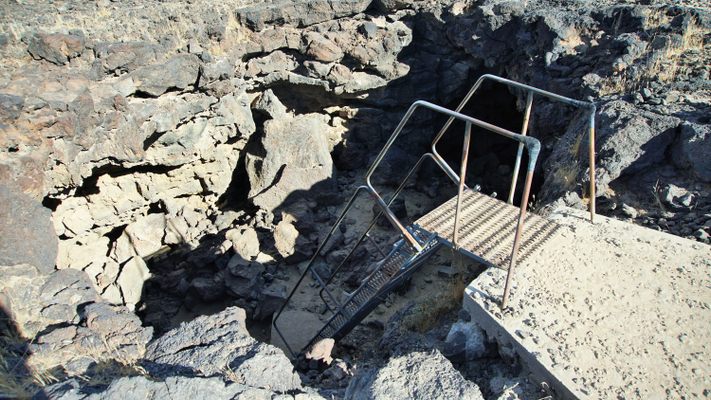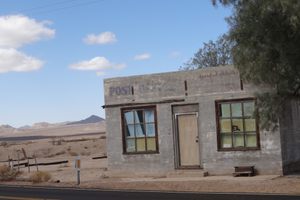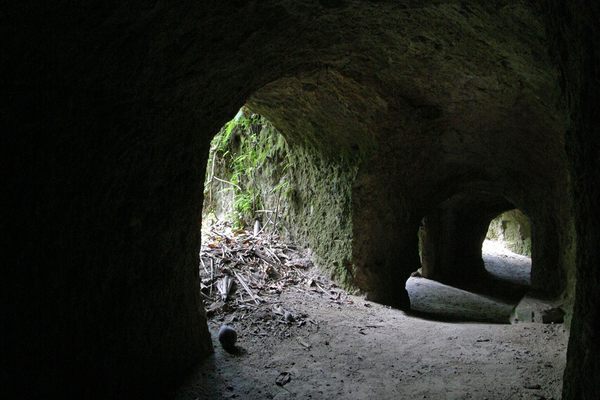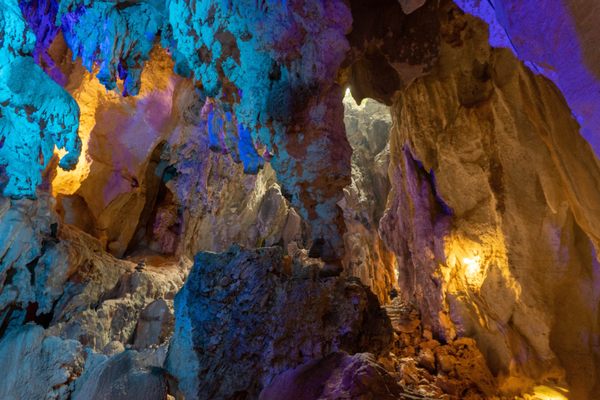About
Though people typically associate volcanoes with high angular peaks, sometimes their most wondrous geological contributions lie hidden below our feet. Proof of this can be found at this subterranean site in the Mojave National Preserve, where a trail that traverses black, tar-like rocks leads to a lava tube.
A set of metal steps leads down into the tunnel formed by molten lava. After descending, explorers will find themselves in a dark cavern. Dust glints in the beams of light that spill through the holes in the ceiling. These natural skylights form spotlights that illuminate the quiet, shaded space.
Entering the lava tube allows for an up-close encounter with a fascinating volcanic phenomenon. If you touch the walls, you’ll feel the lava that cooled and hardened to form the tunnel; a tactile reminder of the natural region’s volatile past.
The lava tube formed when molten basaltic lava coursed across the landscape, oozing outward and spreading like melting butter. Though the top hardened as it cooled, lava continued moving beneath, carving tunnels as it churned along. Eventually, after the volcanic eruption ceased, the lava flowed out the end of the tunnel and left a hollow tube in its wake.
The Mojave National Preserve has an expansive history of volcanic activity. It’s been about 7.6 million years since the first cinder cones burst upward from the Earth’s crust, and the lava didn’t stop flowing until only 10,000 years ago.
Related Tags
Know Before You Go
The lava tube is reached by a 4.75-mile drive along Aiken Mine Road from its intersection with Kelbaker Road. Although the road is unpaved, the stretch to the lava tube is passable in non-4WD/high clearance vehicles unless recent rain has washed out parts of the road.
Community Contributors
Added By
Published
December 19, 2017
Sources
- https://www.nps.gov/moja/planyourvisit/upload/Cinder_Cones_SB_Bl_LowRes.pdf
- https://www.yelp.com/biz/mojave-lava-tubes-baker
- https://www.hikespeak.com/trails/lava-tube-mojave/
- https://californiathroughmylens.com/lava-tube-mojave-national-preserve
- http://www.birdandhike.com/Hike/MOJA/Lava_Tube/_Lava_Tube.htm
